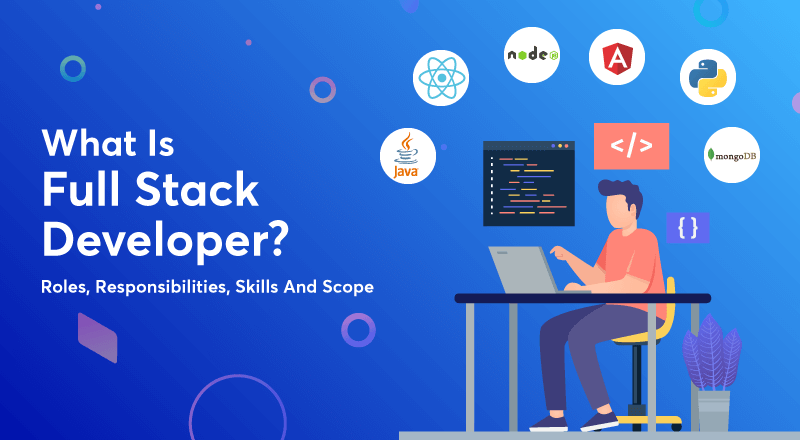Are you looking for a career that combines technology, problem-solving, and collaboration with business teams? Look no further than becoming an RPA (Robotic Process Automation) developer. With the rise of automation in various industries, the demand for skilled professionals in this field is on the rise. In this article, we will explore the role of an RPA developer, essential skills for success, the future of RPA, and the lucrative career opportunities it offers.
The Role of an RPA Developer

As an RPA developer, your main responsibility is to design and implement workflow automation solutions for businesses. You will work closely with business teams to understand their processes and identify areas where automation can be implemented. Your role also involves managing projects, troubleshooting issues, and ensuring the smooth functioning of automated processes.
Collaborating with Business Teams
One of the key aspects of being an RPA developer is collaborating with business teams. This involves understanding their processes, pain points, and goals. By working closely with them, you can identify areas where automation can bring efficiency and cost savings. This collaboration also helps in designing customized solutions that meet the specific needs of the business.
Designing Workflow Automation
The core responsibility of an RPA developer is to design and implement workflow automation. This involves using tools like UiPath and Automation Anywhere to create bots that can perform repetitive tasks. These bots mimic human actions and can handle a variety of tasks such as data entry, data extraction, and report generation. As an RPA developer, you will need to have a strong understanding of these tools and their capabilities.
Managing Projects
RPA projects involve multiple stakeholders, timelines, and deliverables. As an RPA developer, you will be responsible for managing these projects from start to finish. This includes creating project plans, setting timelines, and ensuring that the project is completed within budget. You will also need to communicate with all stakeholders and provide regular updates on the progress of the project.
Troubleshooting Issues
In any automation project, there may be issues or errors that arise. As an RPA developer, it is your responsibility to troubleshoot these issues and find solutions. This requires a strong understanding of the tools and processes involved in the automation, as well as problem-solving skills. You will need to think critically and creatively to identify the root cause of the issue and implement a solution.
Coding Skills and Proficiency in Tools
To become an RPA developer, you will need to have coding skills and proficiency in tools like UiPath and Automation Anywhere. These tools use their own programming languages, so you will need to learn them to create bots and automate processes. In addition, having a strong foundation in programming languages like C/C++, Python, Ruby, and Java can be beneficial in understanding the logic behind automation and troubleshooting any issues that may arise.
Essential Skills for Success as an RPA Developer

Apart from technical skills, there are certain essential skills that are crucial for success as an RPA developer. Let’s take a look at some of these skills:
Strategic Planning
As an RPA developer, you will need to have a strategic mindset to identify areas where automation can bring the most value. This involves understanding the business goals and aligning them with the capabilities of automation. By having a strategic approach, you can design solutions that not only automate processes but also contribute to the overall growth of the business.
Analytical Thinking
Automation involves analyzing processes, identifying patterns, and finding ways to optimize them. As an RPA developer, you will need to have strong analytical thinking skills to understand complex processes and break them down into smaller, manageable tasks. This will help in designing efficient and effective automation solutions.
Problem-Solving
Automation projects may face challenges or roadblocks, and it is the responsibility of an RPA developer to find solutions. This requires strong problem-solving skills, where you can think critically and come up with creative solutions. By being a problem-solver, you can ensure that automation projects are completed successfully.
Continuous Skill Refinement
The field of RPA is constantly evolving, and as an RPA developer, you will need to continuously refine your skills to stay relevant. This involves keeping up with the latest tools, technologies, and trends in the industry. By continuously learning and upgrading your skills, you can stay ahead of the competition and be a valuable asset to any organization.
The Future of RPA

The future of RPA looks promising, with the market expected to reach $2.9 billion by 2021. This growth can be attributed to the increasing adoption of automation in various industries such as healthcare, manufacturing, and retail. As businesses look for ways to streamline processes and reduce costs, the demand for skilled RPA professionals is only going to increase.
Apart from the growing market, there are also advancements in RPA technology that are shaping its future. These include the use of artificial intelligence and machine learning to make bots smarter and more efficient. With these advancements, RPA is expected to become even more sophisticated and capable of handling complex tasks.
Lucrative Career Opportunities

Becoming an RPA developer offers lucrative career opportunities, with attractive salaries and high demand for skilled professionals. According to Glassdoor, the average salary range for an RPA developer is between $97,166 – $141,261. This can vary based on factors such as experience, location, and industry.
Apart from the financial benefits, being an RPA developer also offers job stability and growth opportunities. With the increasing adoption of automation, the demand for RPA professionals is expected to rise, creating a need for more skilled individuals in this field. This also opens up opportunities for career growth, with roles such as RPA architect and RPA project manager.
Conclusion
In conclusion, becoming an RPA developer can be a rewarding career choice for those interested in technology, problem-solving, and collaboration. With the growing market, advancements in technology, and high demand for skilled professionals, the future of RPA looks bright. By developing essential skills and continuously refining them, you can become a successful RPA developer and have a lucrative career in the field of automation.



